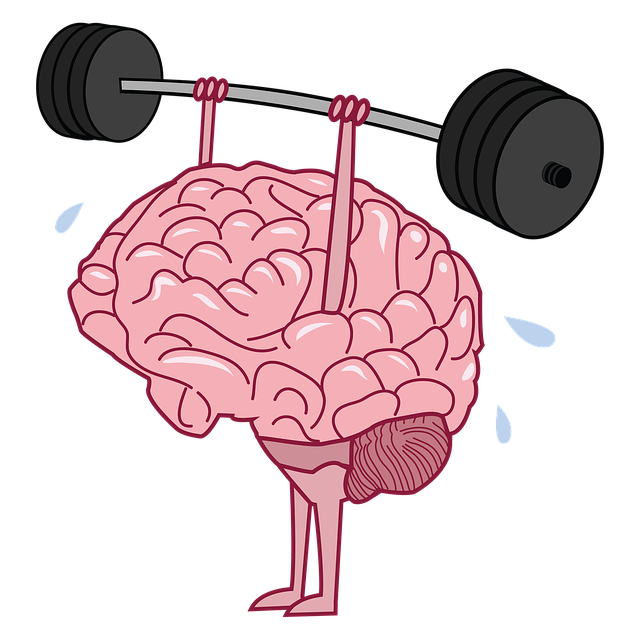Lakewood Mandarin Chinese Speaking Therapy (LMCST) introduces a unique approach to mental wellness, focusing on journaling as a powerful tool for the Mandarin-speaking community. By combining culturally sensitive practices with self-reflection through writing, LMCST enables individuals to track their mental health journeys, reduce stigma, and enhance emotional well-being. Journaling encourages self-awareness, personal growth, and effective communication, catering specifically to the needs of Lakewood's Mandarin Chinese population. This simple yet effective practice offers a safe space for self-care, mood management, and overall emotional wellness, accessible to all.
“Unwind your mind and embark on a journey of self-discovery with Mental Wellness Journaling. This comprehensive guide, inspired by the Lakewood Mandarin Chinese Speaking Therapy Approach, explores how journaling can be a powerful tool for emotional well-being. From understanding mental wellness to practical writing prompts, we delve into strategies that foster self-reflection and personal growth. Learn how setting up your journal space and integrating this practice into daily life can enhance resilience and promote a healthier mind. Uncover the benefits of journaling and embrace a new level of self-care.”
- Understanding Mental Wellness and Journaling: The Lakewood Mandarin Chinese Speaking Therapy Approach
- Benefits of Journaling for Emotional Health
- Setting Up Your Journal: A Creative Space for Self-Reflection
- Writing Prompts for Exploring Thoughts and Feelings
- Integrating Journaling into Daily Life: Consistency and Self-Care Practices
Understanding Mental Wellness and Journaling: The Lakewood Mandarin Chinese Speaking Therapy Approach

Understanding Mental Wellness and Journaling: The Lakewood Mandarin Chinese Speaking Therapy Approach
Mental wellness journaling is a powerful tool for promoting emotional well-being, as it allows individuals to introspect, process their thoughts, and track their mental health journey. The Lakewood Mandarin Chinese Speaking Therapy (LMCST) approach integrates this practice within its comprehensive therapy framework. LMCST recognizes the unique challenges faced by the Mandarin-speaking community in accessing mental health services, particularly those who may feel constrained by cultural barriers or stigma surrounding mental illness.
Through journaling exercises tailored to their language and cultural context, individuals can openly express their feelings, explore coping mechanisms, and gain insights into their emotional patterns. This approach not only facilitates self-reflection but also empowers them to actively participate in their therapy process. By combining the benefits of journaling with evidence-based therapy techniques, LMCST aims to enhance mental illness stigma reduction efforts, improve risk assessment for mental health professionals, and ultimately foster a more supportive environment for emotional well-being promotion techniques among the Mandarin-speaking population.
Benefits of Journaling for Emotional Health

Journaling has emerged as a powerful tool for emotional well-being, offering individuals a private space to explore and understand their thoughts and feelings. For those seeking mental wellness support, particularly in communities like Lakewood with a diverse population such as Mandarin Chinese speakers, journaling can be an accessible and beneficial practice. It encourages self-awareness exercises, allowing individuals to identify and process their emotions effectively. By writing down experiences and reflections, one can gain valuable insights into their thought patterns and triggers, fostering personal growth and resilience.
This simple yet profound activity also serves as a form of therapy, providing a safe outlet for expression. It promotes empathy building strategies by encouraging individuals to understand and validate their own emotions before extending that compassion to others. Moreover, regular journaling can enhance communication skills, which are essential for effective interactions with healthcare providers during cultural competency training sessions. This practice enables people to articulate their needs and experiences, ensuring more personalized and culturally sensitive care.
Setting Up Your Journal: A Creative Space for Self-Reflection

Setting up your journal is the first step in creating a dedicated space for self-reflection and emotional well-being promotion techniques. Just as Lakewood Mandarin Chinese Speaking Therapy provides a safe, confidential environment for clients to explore their thoughts, consider transforming your personal space into a sanctuary where you can engage in regular self-care practices. Choose a quiet area, free from distractions, and fill it with items that inspire and motivate you. This could include colorful stationery, inspiring quotes, or even a small potted plant—any elements that make the space feel uniquely yours.
Imagine this creative setup as your personal sanctuary for cultivating mindfulness and anxiety relief. Each entry in your journal becomes an opportunity to track your emotions, gain insights into your thought patterns, and practice self-compassion. Through regular journaling, you can develop a deeper understanding of yourself and discover effective self-care practices that support your overall mental wellness journey.
Writing Prompts for Exploring Thoughts and Feelings

Journaling is a powerful tool for self-reflection and personal growth, especially when coupled with thoughtful writing prompts. For those seeking to enhance their mental wellness, particularly Lakewood Mandarin Chinese speaking individuals, these prompts can help explore and articulate thoughts and feelings effectively.
Incorporating writing exercises tailored to one’s cultural background, such as those inspired by Lakewood Mandarin Chinese speaking therapy practices, adds a layer of cultural sensitivity in mental healthcare. Prompts might encourage reflecting on daily experiences, describing emotions with vivid language, or sharing personal stories that contribute to an individual’s sense of self. By engaging in these prompts regularly, individuals can develop better mood management skills and improve their overall emotional well-being. Additionally, it fosters communication strategies by encouraging honest expression, which is essential for building a strong therapist-client relationship (or in this case, writer-self relationship) in the context of cultural sensitivity in mental healthcare practice.
Integrating Journaling into Daily Life: Consistency and Self-Care Practices

Integrating journaling into your daily routine can be a transformative self-care practice, offering a quiet space for reflection and emotional processing. At Lakewood Mandarin Chinese Speaking Therapy, we encourage clients to view journaling as an essential tool for maintaining mental wellness, particularly in today’s fast-paced world where burnout prevention strategies for healthcare providers are increasingly vital.
Consistency is key; setting aside just 15 minutes each day for reflective writing can make a significant difference. This practice allows individuals to track their emotions, identify patterns, and develop effective communication strategies to enhance emotional well-being promotion techniques. By documenting thoughts and experiences, one can gain valuable insights into their mental state, fostering self-awareness and personal growth. Additionally, journaling provides an outlet for processing stressful events or challenging situations, helping to prevent emotional buildup that may lead to burnout.
Mental wellness journaling is a powerful tool, as evidenced by the effective Lakewood Mandarin Chinese Speaking Therapy approach. By integrating this practice into daily life, individuals can reap significant emotional health benefits. Through self-reflection and creative expression, setting up a dedicated journal space, and utilizing prompts to explore thoughts and feelings, consistency in journaling becomes a valuable self-care practice. Embrace the transformative potential of mental wellness journaling for enhanced emotional well-being.














